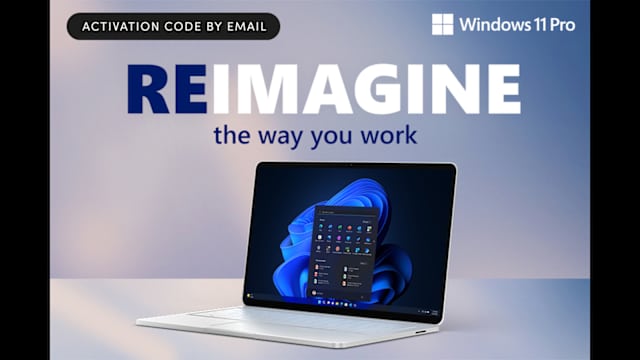Microsoft stunned the gaming industry when it announced this week it would buy game publisher Activision Blizzard for $68.7 billion, a deal that would immediately make it a larger video-game company than Nintendo.
Microsoft, maker of the Xbox gaming system, said acquiring the owner of Candy Crush, Call of Duty, Overwatch and Diablo would be good for gamers and advance its ambitions for the metaverse — a vision for creating immersive virtual worlds for both work and play.
Recommended Videos
But what does the deal really mean for the millions of people who play video games, either on consoles or their phones? And will it actually happen at a time of increased government scrutiny over giant mergers in the U.S. and elsewhere?
SO, IS IT GOOD FOR GAMERS?
“For the average person who is playing Candy Crush or anything else, there will probably be no changes at all," said RBC analyst Rishi Jaluria.
But Jaluria and other industry watchers think it could be good news for game development more broadly, especially if Microsoft’s games-for-everybody mission and mountain of cash can rescue Activision from its reputation for abandoning favorite game franchises while focusing on a few choice properties.
“Microsoft wants to increase the variety of intellectual property," said Forrester analyst Will McKeon-White. “Their target is anyone and everybody who plays video games and they want to bring that to a wider audience."
He said the “most egregious” example of a popular franchise that Activision, founded in 1979, left by the wayside is StarCraft, last updated in 2015. Others include Guitar Hero, the Tony Hawk skateboarding games and MechWarrior, which McKeon-White said “basically wasn't touched for two decades."
On the other hand, the prospect of a console-maker like Microsoft controlling so much game content raised concerns about whether the company could restrict Activision games from competitors.
Microsoft expects to bring as many Activision games as it can to Xbox's subscription service Game Pass, “with some presumably becoming Microsoft exclusives,” wrote Wedbush analyst Michael Pachter. However, he noted antitrust regulators may not allow Microsoft to keep games off Sony’s competing game console, the PlayStation.
Pachter said that Activision presents a model for Microsoft for how to evolve its classic console franchises. It has adapted Call of Duty into successful mobile and free games, and he expects the company to help Microsoft do the same with its own games, such as Halo.
IS THIS REALLY ABOUT THE METAVERSE?
Microsoft says so. And there are some ways Activision could help the tech giant compete with rivals like Meta, which renamed itself from Facebook last year to signal its new focus on leading its billions of social media users into the metaverse.
Metaverse enthusiasts describe the concept as a new and more immersive version of the internet, but to work it will require a lot of people to actually want to spend more time in virtual worlds. Microsoft's metaverse ambitions have focused on work tools such as its Teams video chat applications, but online multiplayer games such as Call of Duty and World of Warcraft have huge followings devoted to interacting with each other virtually for fun.
“That's where Activision really helps," said RBC's Jaluria. “Millions of people play Call of Duty online. The community element helps drive adoption."
Pushing more people into such virtual social networks will not be all fun and games, however, and could amplify existing problems with online harassment, trolling and identity theft, according to Elizabeth Renieris, founding director of the Technology Ethics Lab at the University of Notre Dame.
WILL IT ACTUALLY HAPPEN?
That's a big unknown. Regulators and rivals could turn up the pressure to block the deal.
Other tech giants such as Meta, Google, Amazon and Apple have all attracted increasing attention from antitrust regulators in the U.S. and Europe. But the Activision deal is so big — potentially the priciest-ever tech acquisition — that Microsoft will also be putting itself into the regulatory spotlight.
“I think it should get a hard look and it probably will get a hard look” by antitrust enforcers, said Diana Moss, president of the American Antitrust Institute. Regulators could ask questions about Microsoft making games exclusive to their own systems and about whether the company would harness user data gained in the acquisition to its advantage in its other businesses.
The Biden administration has been moving to strengthen enforcement against illegal and anticompetitive mergers.
If the deal fails, Microsoft will owe Activision a “break-up fee” of up to $3 billion. That prospect should motivate Microsoft to make concessions to antitrust regulators to get it done, said John Freeman, vice president at CFRA Research.
DOESN'T ACTIVISION HAVE WORKPLACE PROBLEMS?
Activision has attracted unwanted attention from U.S. workforce discrimination regulators, the Securities and Exchange Commission and its own shareholders over allegations of a toxic workplace. California’s civil rights agency also sued the Santa Monica-based company in July, citing a “frat boy” culture that had become a “breeding ground for harassment and discrimination against women.”
Microsoft CEO Satya Nadella noted in an investor call Tuesday that “the culture of our organization is my No. 1 priority," adding that ”it’s critical for Activision Blizzard to drive forward” on commitments made last year to improve its workplace culture. Activision hasn't made clear if its longtime leader Bobby Kotick, the CEO since 1991, will stick with Microsoft after the deal is closed.
Activision's legal problems dragged down its stock price and might have made it easier for Microsoft to make a successful takeover bid. But a union representing technology and gaming workers said concerns about working conditions should be considered by U.S. and state officials before any deal is approved.
“Activision Blizzard worker concerns must be addressed in any plan - acquisition or not – on the future direction of the company,” Christopher Shelton, president of the Communications Workers of America, said in a statement.




